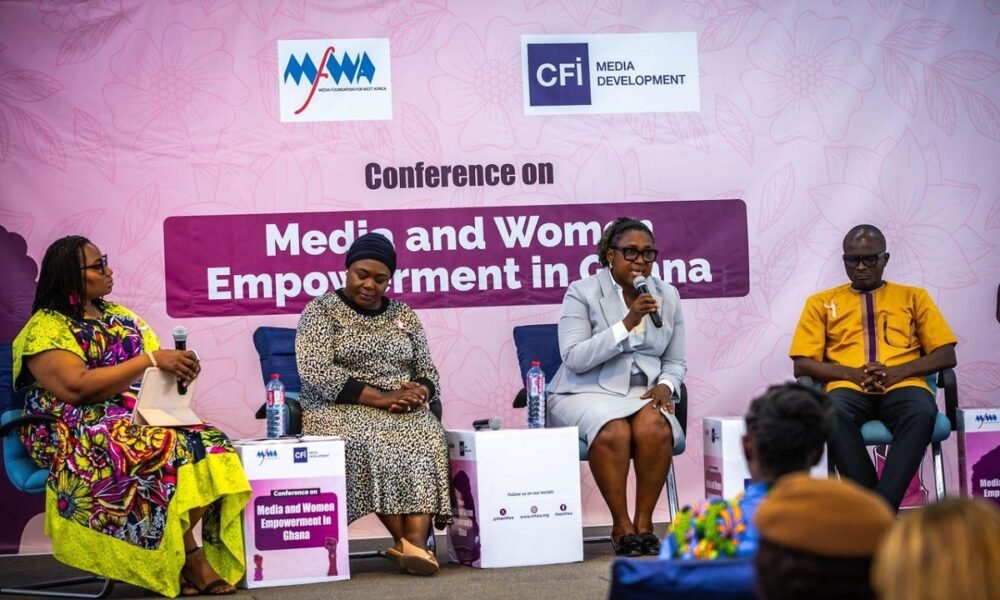News
Media organisations told to create female-friendly workplaces

A section of the panellist at the forum
Media organisations have been urged to create supportive workplace environments sensitive to specific needs of female journalists.
According to the Executive Director of Women and Change (WOMEC), Dr Charity Binka, women have been marginalised in the media space for too long, adding that women make up only 25 per cent of news and 30 per cent of leadership roles in the media industry.
Dr Binka made this recommendation in a presentation on “Equal Voices- Promoting gender equality in media in Ghana” at the Media and Women Empowerment Forum held at the Accra International Conference Centre (AICC) last Wednesday.
The conference which was organised by Media Foundation for West Africa (MFWA) in partnership with the French Media Development Agency was to combat gender inequalities while promoting women at all levels of responsibility in the country.
“There’s no focus on women in the media and most of the organisations do not have policies on gender and gender-based abuse,” she said.
Furthermore, Dr Binka noted that media houses who have guidelines on gender must develop them into policies and the ones who have existing policies must ensure that these policies were enforced.
“Journalism training schools should incorporate gender into their curriculum and where they lack capacity, they should collaborate with gender experts,” she added.
The Head of Department of Communications Studies, University of Ghana, Prof. Abena Animwaa Yeboah-Banin, emphasised the need for media organisation to adopt female friendly workplace practices, adding that there was evidence of masculine work practices and socialisation which makes it difficult for women to fit in.
She called for women participation in decisions making especially in matters that affects women or related to them.
“Women are not sitting at the table where decisions that affect them are made; there is low inequality consciousness. Sometimes, women who are being discriminated against do not know about it themselves,” she noted.
On her part, the Deputy Director, Ministry of Gender, Children and Social Protection, Ms Vera Karikari, said the media was a powerful tool that could reinforce stereotypes or drive empowerment that can bring change.
Other speakers included the Programmes Officer, Media for Democracy and Good Governance, MFWA, Mr William Nianjerbor Jalulah; a lecturer at UniMAC-IJ, Mrs Ewuradwoa S. Tabicca, and Head of Social and Development Desk, Despite Media, Ms Nana Yaa Konadu Yiadom.
By Cecilia Lagba Yada